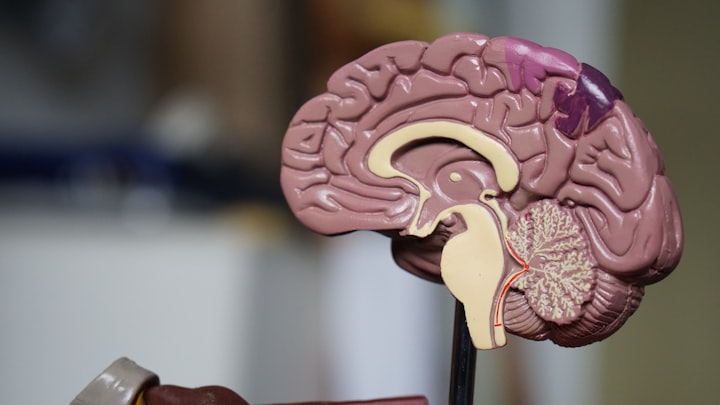Maintaining good brain health is your biggest priority
An article on how to maintain good brain health

Maintaining good brain health is important for overall well-being and can help improve cognitive function. There are several ways to keep your brain healthy and functioning at its best:
Click on this link to order the best book on how to maintain good brain health.
Stay mentally active: Engaging in activities that challenge the brain, such as puzzles and games, reading, writing, and learning new skills, can help improve brain function and prevent cognitive decline.
Get enough sleep: Adequate sleep is essential for brain health. It allows the brain to repair and rejuvenate itself, and lack of sleep has been linked to cognitive decline and an increased risk of developing brain disorders such as Alzheimer's disease.
Exercise regularly: Exercise has been shown to improve brain function and reduce the risk of developing brain disorders. It can also help improve mood and reduce stress, both of which are important for maintaining good brain health.
Eat a healthy diet: A healthy diet that is rich in fruits, vegetables, and other nutrients is important for maintaining good brain health. Some specific nutrients that have been shown to be important for brain health include omega-3 fatty acids, found in fatty fish such as salmon and sardines, and antioxidants, found in fruits and vegetables.
Stay hydrated: Drinking enough water is important for maintaining good brain function. Dehydration can affect cognitive function and can cause fatigue, confusion, and difficulty concentrating.
Reduce stress: Chronic stress can have negative effects on brain health, including impairing cognitive function and increasing the risk of developing brain disorders. It is important to find ways to manage stress, such as through relaxation techniques, exercise, and social support.
Avoid risky behaviors: Substance abuse, such as smoking and heavy alcohol consumption, can damage the brain and increase the risk of developing brain disorders. It is important to avoid these behaviors in order to maintain good brain health.
In addition to these general guidelines, there are also some specific things that you can do to maintain good brain health as you age. These include:
Staying social: Maintaining social connections and engaging in social activities has been shown to improve brain function and may reduce the risk of developing brain disorders such as Alzheimer's disease.
Staying mentally and physically active: Engaging in activities that challenge the brain and body, such as puzzles and games, physical exercise, and learning new skills, can help maintain brain function as you age.
Continuing to learn: Engaging in lifelong learning and trying new things can help keep the brain active and may help improve cognitive function.
Exercise regularly: Physical activity has been shown to have numerous benefits for brain health. It increases blood flow to the brain and has been linked to the growth of new brain cells. Aim for at least 30 minutes of moderate-intensity exercise, such as brisk walking, every day.
Eat a healthy diet: A diet rich in fruits, vegetables, and healthy fats, such as those found in olive oil and avocados, can support brain health. Omega-3 fatty acids, found in fatty fish like salmon and in nuts and seeds, are particularly important for brain health.
Get enough sleep: Sleep is essential for brain health, as it allows the brain to rest and repair itself. Adults should aim for 7-9 hours of sleep per night.
Stay mentally active: Engaging in activities that challenge the brain, such as puzzles and games, can help keep the brain active and potentially delay the onset of age-related cognitive decline.
Stay socially active: Social connections and relationships are important for overall well-being and have been linked to better brain health. Make an effort to stay connected with friends and loved ones.
Reduce stress: Chronic stress has been linked to negative impacts on brain health, including decreased cognitive function and an increased risk of developing mental health conditions like anxiety and depression. Try to incorporate stress-reducing activities, such as meditation and yoga, into your daily routine.
Avoid smoking and excessive alcohol consumption: Smoking and excessive alcohol consumption have been linked to negative impacts on brain health. If you smoke, try to quit, and if you drink alcohol, do so in moderation.
By following these tips, you can help maintain good brain health and potentially improve cognitive function. It's never too late to start taking care of your brain, so consider incorporating these healthy habits into your routine.
About the Creator
Aryan Alam
i want to help people





Comments
There are no comments for this story
Be the first to respond and start the conversation.